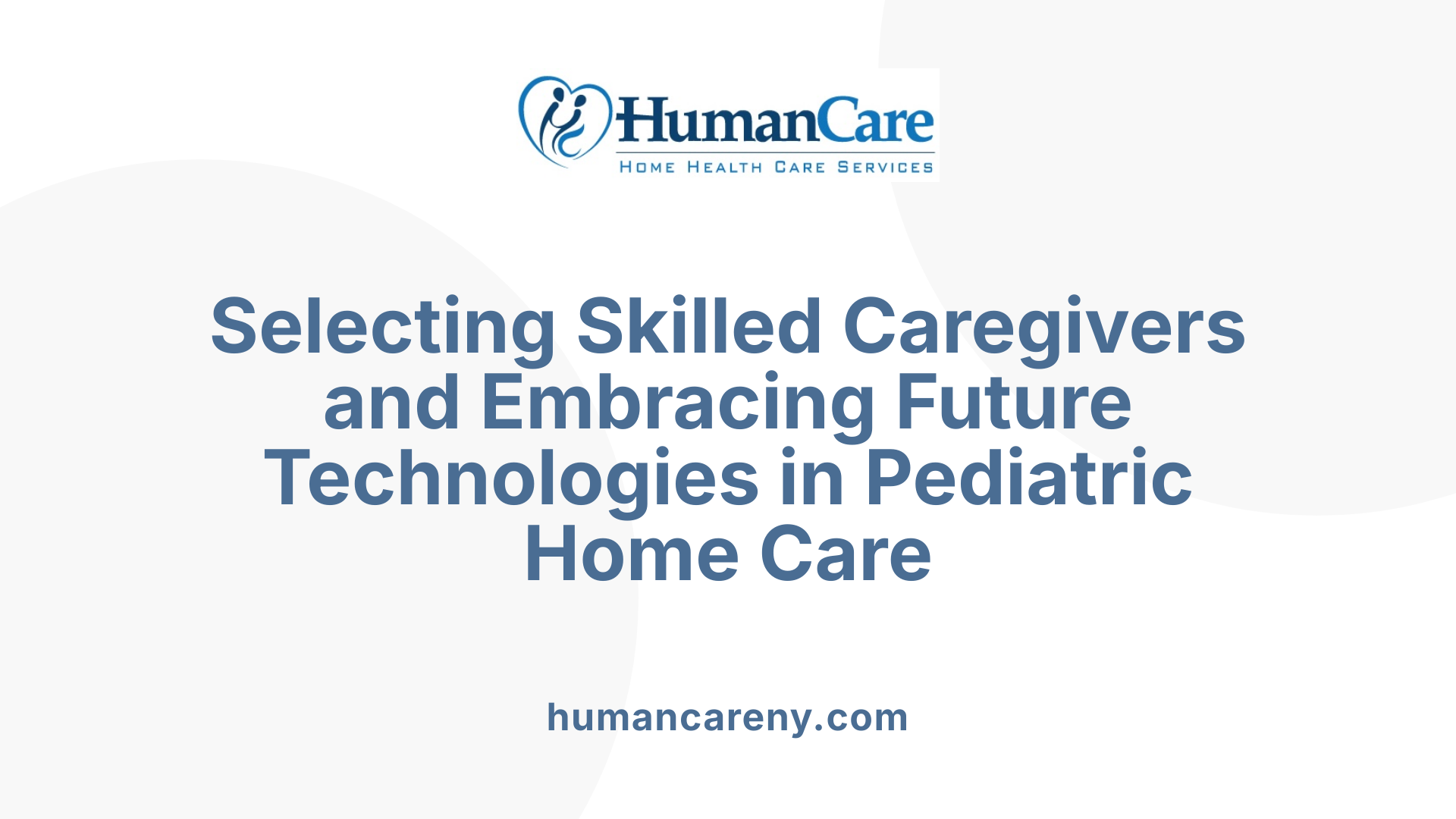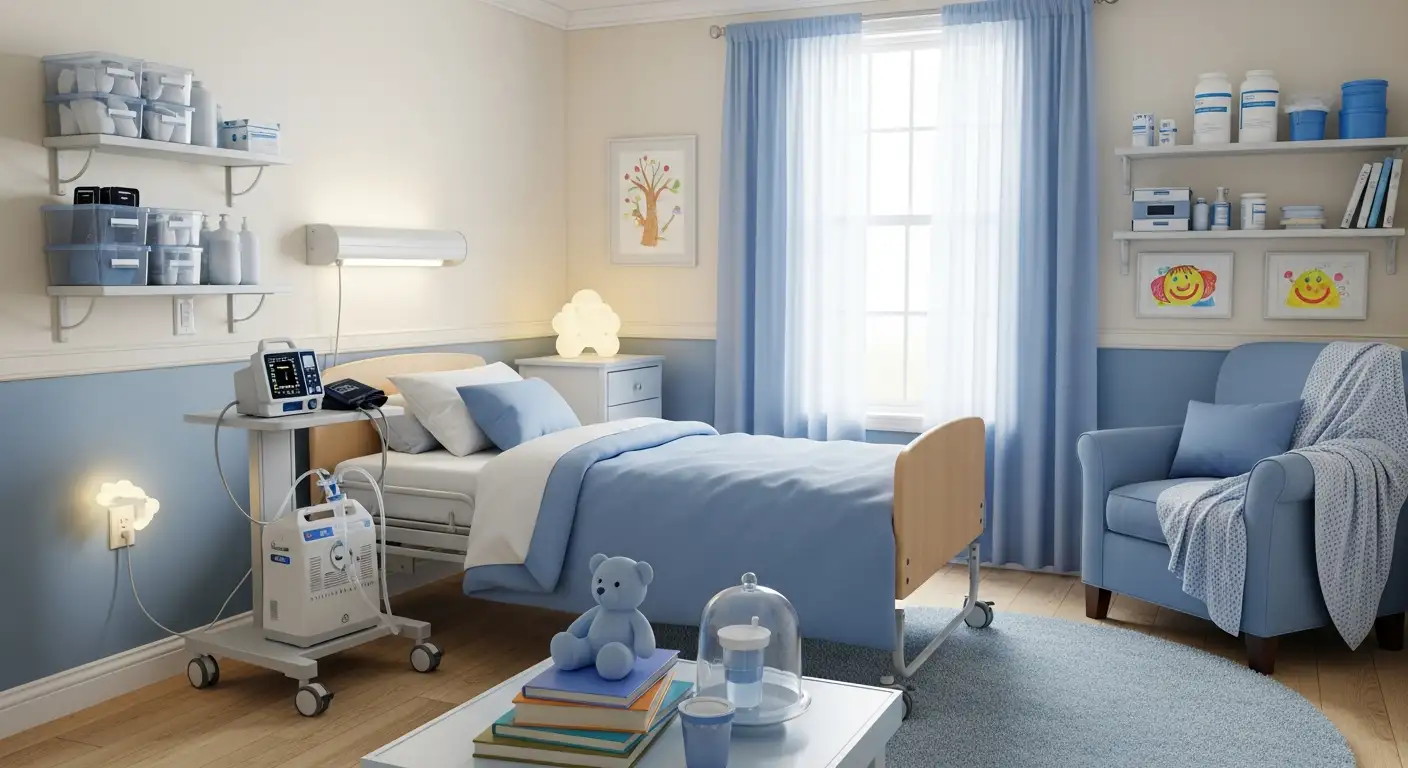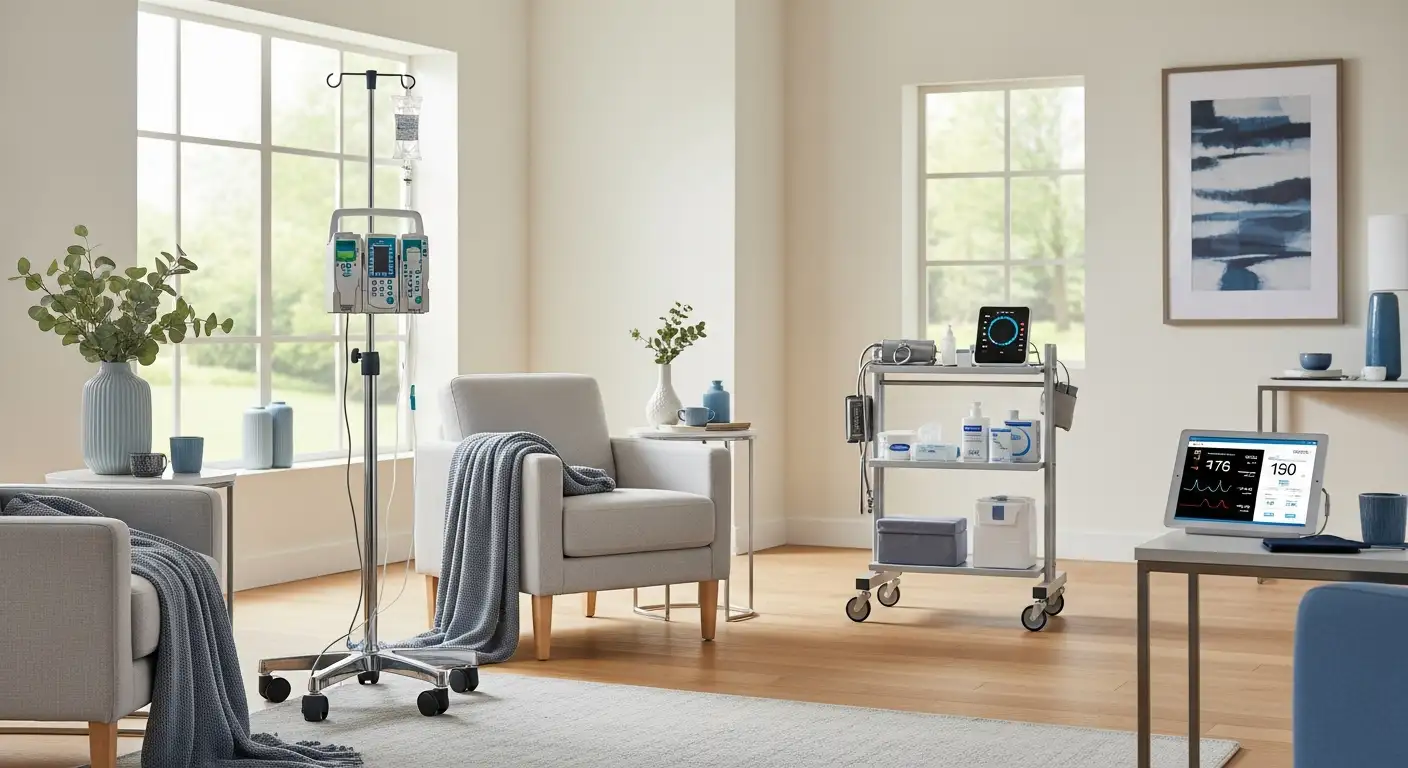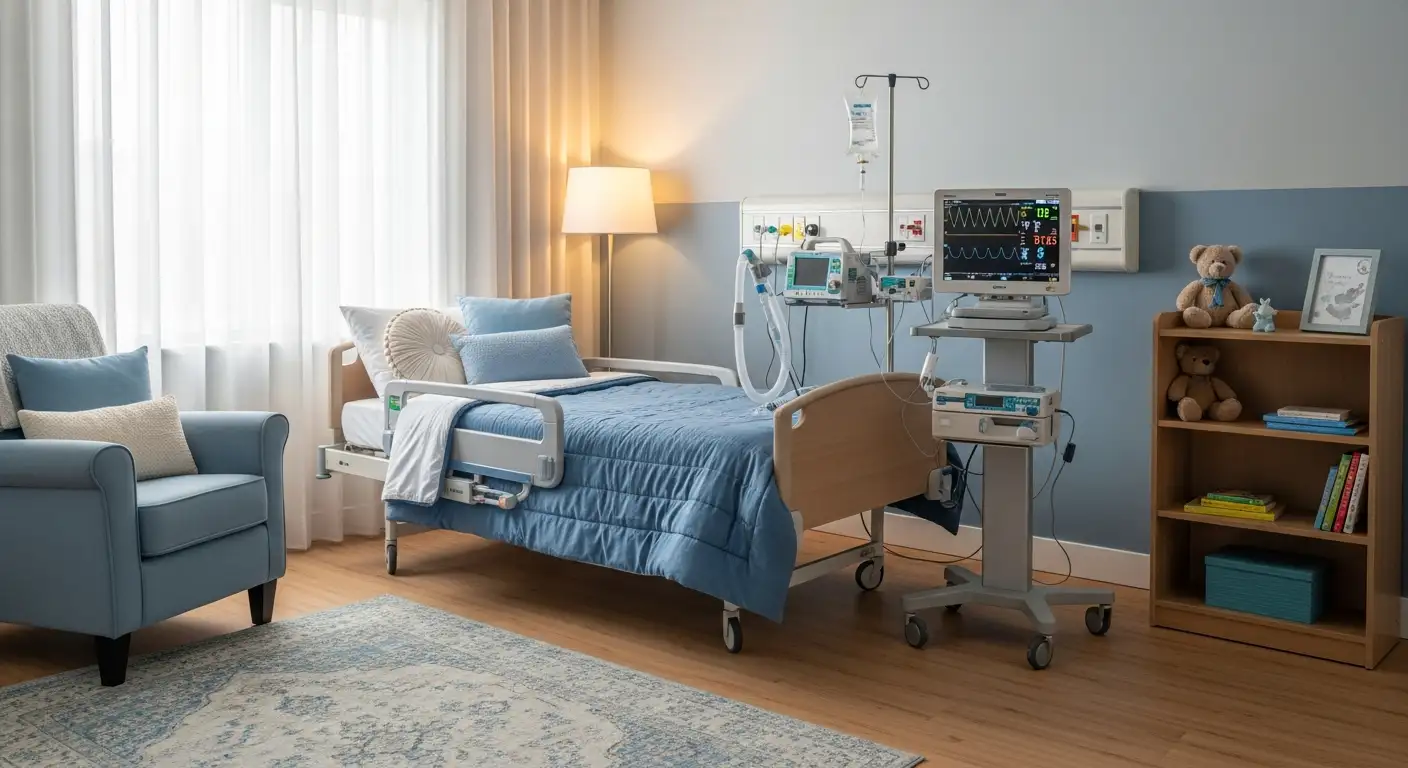The Challenge of School Reintegration for Medically Fragile Children
Children with chronic medical conditions often face significant challenges when returning to school after prolonged illness or hospitalizations. Pediatric home health care emerges as a critical support system, enabling these children to reintegrate into the educational environment more smoothly while attending to their complex health needs in a familiar setting.
Comprehensive Medical and Therapeutic Support at Home
What is the scope of pediatric home health care services?
Pediatric home health care delivers a wide spectrum of medical and therapeutic services to children with chronic and complex health conditions, right in their own homes. This approach allows children to avoid prolonged hospital stays by receiving skilled nursing care, therapies, and daily living assistance without the disruptions and risks of institutional settings. Key services include pediatric nursing, school care support, infusion therapy, and palliative care, all coordinated closely with the child's primary healthcare providers for seamless treatment continuity.
What types of therapies are provided?
Various specialized therapies are integral to pediatric home care. Physical therapy enhances mobility and strength; occupational therapy focuses on improving daily functional skills and independence; speech therapy supports communication and cognitive development. These therapeutic interventions are essential not only for restoring physical abilities but also for fostering self-confidence and preventing developmental delays. Rehabilitation and oncology therapies also form part of the comprehensive care, tailored to each child's unique medical needs.
How does pediatric home health care prevent prolonged hospital stays?
By providing advanced, continuous medical care at home—including nursing and therapeutic support—pediatric home health care allows children to recover and manage chronic conditions with fewer emergency and hospital visits. Home care agencies often initiate planning during hospital stays, facilitating smooth transitions with personalized care plans. Close monitoring and timely interventions help stabilize medical conditions, reducing the need for readmissions and supporting quicker recovery in a familiar environment.
What medical equipment is used in home settings?
Home health care incorporates a range of specialized medical equipment adapted for pediatric use. Common devices include oxygen therapy systems, ventilators, apnea monitors, wheelchairs, and nebulizers, which support respiratory and mobility challenges. For infants, particularly those born prematurely, neonatal home care employs feeding aids and weight monitors to track growth milestones. This equipment enables comprehensive care delivery comparable to hospital settings, while allowing children to thrive in their home environment.
Facilitating Cognitive Development and Academic Progress

How does pediatric home health care support children with schoolwork?
Pediatric home health care plays a crucial role in supporting children's educational needs by assisting them with schoolwork. This support helps children who face medical challenges maintain their academic progress while managing their health conditions at home.
What therapies are used to enhance communication and cognitive skills?
Specialized therapies such as speech therapy and occupational therapy are provided within the home setting to enhance communication and cognitive skills. These therapies focus on improving a child’s ability to express themselves clearly and develop essential thinking skills needed for learning and interaction.
How does pediatric home care bridge educational gaps?
By offering consistent, tailored assistance, pediatric home care helps bridge gaps in education that might occur due to frequent hospital visits or medical interruptions. The home environment allows children to keep up with their studies and therapy sessions without falling behind academically.
In what ways does pediatric home care prevent developmental delays?
Early intervention through therapies and school support in pediatric home care prevents developmental delays by addressing delays as they arise. Continuous therapeutic engagement and educational support enable children to meet developmental milestones at their own pace.
These combined efforts allow children with medical needs to thrive academically and cognitively while receiving the care they need in the comfort of their homes.
Emotional, Social, and Family-Centered Benefits

How Does Pediatric Home Health Care Support Emotional Well-Being?
Pediatric home health care plays an important role in promoting the emotional well-being of children with medical needs. By providing care in a familiar home environment, it helps reduce the stress and anxiety often associated with frequent hospital visits and stays. The presence of consistent caregivers fosters a sense of security and comfort, enabling children to feel more relaxed during their treatment routines.
How Does It Help Reduce Stress and Anxiety?
Being cared for at home, surrounded by family and familiar surroundings, naturally reduces the emotional strain on children and their families. Children avoid the overwhelming stimuli of hospital settings, and families feel more at ease managing care. Skilled professionals further support this process by offering compassionate care tailored to the child’s unique needs.
What Role Does Family Involvement Play?
Family engagement is central to pediatric home health care. Caregivers work closely with family members, involving them in treatment plans and daily care routines. This partnership empowers families, ensuring that they understand medical procedures, therapy goals, and can provide sustained support. It also strengthens family bonds by integrating caregiving into everyday life.
How Are Structured Social Interactions and Therapy Facilitated?
Home health services often include therapies that encourage social interaction and cognitive development, such as speech and occupational therapy. These structured activities are designed not only to improve medical outcomes but also to foster social skills and confidence. Engaging in therapy at home allows children to practice these skills in a safe, supportive environment.
| Benefit Area | Description | Impact on Child and Family |
|---|---|---|
| Emotional Well-Being | Familiar environment reduces anxiety; consistent caregivers create stability | Increased comfort and reduced emotional distress |
| Stress Reduction | Avoidance of hospital-induced stress, compassionate personalized care | Lower stress levels, better overall health outcomes |
| Family Involvement | Active participation in care plans and daily routines | Enhanced caregiver confidence, stronger family relationships |
| Social Interaction | Therapy includes structured activities tailored to social and cognitive development | Improved social skills and communication, greater child confidence |
Promoting Independence and Life Skills for School and Beyond

Teaching Self-Care and Adaptive Skills
Pediatric home health care plays a vital role in helping children develop independence by teaching essential self-care tasks such as bathing, dressing, and feeding. These foundational skills enable children to manage daily activities with greater confidence and autonomy, preparing them for more complex responsibilities as they grow.
Family Collaboration in Establishing Routines
An important aspect of pediatric home care is the close partnership between caregivers and families. Professionals work together with parents to create consistent routines tailored to the child’s unique needs, encouraging steady progress towards independence. This family-centered approach strengthens the child’s support system and ensures that new skills are reinforced in a familiar environment.
Building Confidence and Mobility
Through specialized therapies including physical and occupational therapy, children improve their mobility and physical capabilities. These interventions not only enhance motor skills but also boost self-confidence, helping children overcome challenges and participate more fully in school and social activities.
Enhancing Communication Skills
Speech therapy is a crucial service within pediatric home health care that supports development of effective communication. This enhances children's ability to express themselves clearly and engage meaningfully with peers and educators, fostering better academic performance and social interactions.
Together, these comprehensive services support children’s growth in ways that extend beyond medical care—promoting life skills that are essential for success at school and in later life.
Choosing the Right Pediatric Home Care Provider and Future Outlook

Why Is It Important to Choose Specialized and Skilled Pediatric Caregivers?
Selecting a pediatric home care provider with experienced and skilled caregivers is essential. These specialists understand the unique medical and emotional needs of children with chronic or severe conditions such as developmental delays, childhood cancer, or respiratory issues. Skilled pediatric nurses, therapists, and social workers work closely with families to deliver compassionate, family-centered care that supports independence and promotes emotional well-being.
What Services Should a Comprehensive Pediatric Home Care Provider Offer?
A broad range of services optimizes care for children. Providers like Johns Hopkins Pediatric Home Care offer neonatal care for premature infants, pediatric palliative and oncology care, infusion therapy, rehabilitation, asthma management, and home medical equipment support. This comprehensive approach ensures treatment plans are tailored to complex individual needs, offering everything from advanced therapies typically found in intensive care units to school support and daily living assistance.
How Does Care Coordination Enhance Pediatric Home Health Care?
Coordinated care between home health teams and primary care providers is critical for seamless treatment. This collaboration ensures personalized care plans are implemented effectively, reduces medical errors, and adapts to changes in the child’s condition over time. Centralized coordination—often managed through a single office—also provides families with convenience and continuity.
What Are Emerging Trends and Technologies Shaping Pediatric Home Care?
The future of pediatric home health care is evolving with telehealth, remote monitoring, and personalized medicine. Telehealth allows virtual consultations and caregiver education, enhancing access and reducing hospital visits. Remote monitoring devices enable continuous tracking of vital signs and therapy progress, helping providers adjust care plans promptly. Overall, these advancements promise more accessible, efficient, and individualized care for children at home.
Integrating Health and Education Through Pediatric Home Care
Pediatric home health care stands as a pivotal bridge supporting children with medical complexities as they navigate the demanding journey back to school. By offering tailored medical services, enhancing cognitive and social development, promoting independence, and involving families closely, pediatric home care creates an environment where children can thrive academically and socially. Choosing experienced providers and embracing innovations ensures these children receive comprehensive, compassionate care that supports both their health and educational aspirations.



